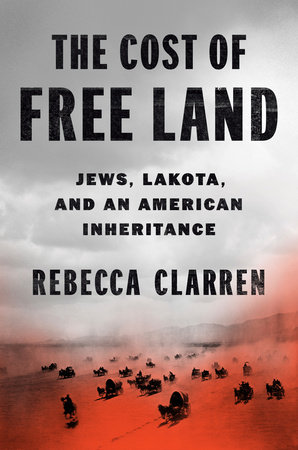READERS GUIDE
1. Rebecca Clarren writes in the prologue, “both the stories we choose to tell and our decision not to tell others create the myth we pass to future generations.” What are the stories or myths you were taught about America? What do you think about Clarren’s journey to untangle the myths passed down to her?
2. Chapter 1 opens not in America but in Russia where Clarren’s ancestors immigrated from. Why do you think she opens the book there? How does their experience in Europe shape their approach to life in America?
3. When the Sinykins arrived in America, they were vulnerable to racist stereotypes about Native Americans. What aspects of both their lives in Russia and in the United States, created this dynamic? What stereotypes of both Jewish and Native people persist in our society and why? What are your prejudices and what feeds them?
4. Politicians who advocated for assimilating Native Americans by making their culture and religion illegal, labelled these efforts as good for Indigenous people, or as “social uplift.” Native elders in the book look back on this history and instead identify it as an attempt at cultural genocide. How were the forces of assimilation leveraged differently for Jewish immigrants and Native Americans?
5. Clarren describes how America’s solution to the “Indian Problem” inspired Hitler’s treatment of Jews during the Holocaust. How does knowing this change the way you think about America during World War II and in the twentieth century overall? What else in these chapters left you to pause and rethink what you know and were taught about American history?
6. The Hebrew word for sin is
chet, derived from an archery term that means “to miss the mark.” How do you think this idea of sin shapes Jewish thinking about harm? How do you view the concept of sin? Is sin useful when considering history?
7. Clarren’s experience studying with her rabbi provided her with guidance for how to respond to the ways her family benefited from American policies that harmed the Lakota. How does your culture or faith tradition, if you have one, shape your ideas of reconciliation and healing?
8. Investigating our own personal family stories within the context of collective history is fraught. What are the lessons Clarren gleaned in her research that offer guidance for how and why it’s important to tell the truth even when it’s painful? How do you approach difficult conversations about the past with your family or loved ones?
9. What happens to our sense of America and of our ancestors when we pull apart the pioneer myth? Can we look critically at the past and still feel proud of our family, of our nation?
10. What do you think is the meaning of the book’s title? What are the various ways the author takes an accounting of her family’s history as homesteaders? What are ways in which you or your family have gained economic or social mobility that have harmed Native Nations?

